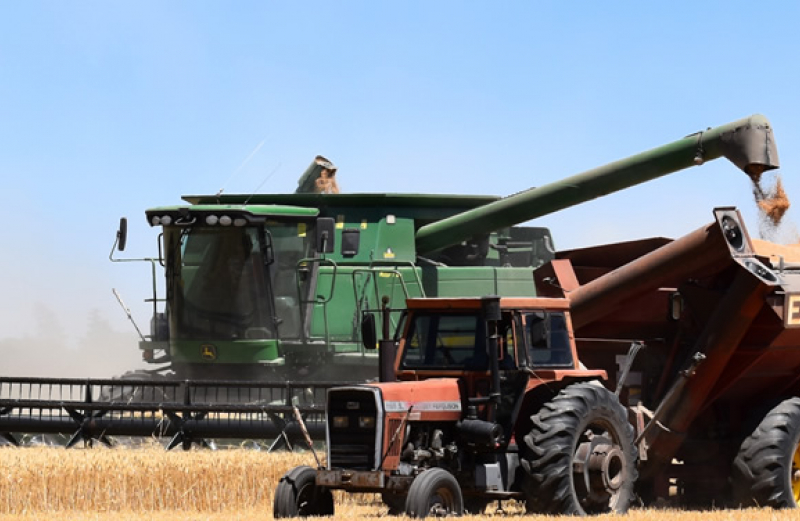Kick-starting the preparations for the second Biennial Review Report on the Implementation of the Malabo Declaration

Johannesburg, May 24, 2019 -The release of the first Comprehensive Africa Agriculture Development Programme (CAADP) Biennial Review Report on the Implementation of the Malabo Declaration on Accelerated Agricultural Growth and Transformation for Shared Prosperity and Improved Livelihoods, in 2018, generated a unique momentum for agricultural development on the African continent. By publicly assessing the progress made on national level, the Biennial Review is putting soft pressure on African leaders to fulfil the commitments they made in Malabo in 2014. These re-prioritise agriculture as engine for African inclusive economic transformation.
As part of the Biennial Review process, the African Union Commission, the Africa Union Development Agency-NEPAD and the Regional Economic Communities hosted a three-day workshop, to outline the content, the structure and related communication materials for the upcoming Biennial Review report.
The workshop follows a series of continental and regional trainings to i) validate the set of 47 indicators profile for the new BR cycle, and ii) strengthen the countries capacities to collect and submit data to feed into the 2020 Biennial Review Report. The meeting was therefore critical for participants to commonly agree on how the ongoing technical work at the regional and country level, could be better presented and communicated, building on the lessons learned from the previous exercise.
Speaking at the gathering, Dr Hamady Diop, Head of the Natural Resources Governance Division at AUDA-NEPAD, emphasised the excitement triggered by the inaugural Biennial Review Report back in 2018. “The challenge is therefore to maintain such momentum and ensure that the biennial review remains relevant to the constituencies in the next 10 years,” he added.
He was echoed by Dr Simplice Nouala, Head of Food Security and Agriculture Division at the AUC, reiterating to the participants the importance of this meeting, as another milestone towards the Biennial Review Report. “Most of the legwork has been already done, through the training of the Member States to collect and submit data. At this stage, we need to put everything together to tell the story of agriculture performance. The report should therefore standout to show the achievements against the Malabo commitments made by the head of states, in order to inform policy and the National Agriculture Investment Plans implementation,” he said.
In line with the agenda, the participants discussed the theme which the report should portray in an effort to have a meaningful impact on the CAADP process. “Resilience and livelihoods” was therefore agreed as the key issue the 2020 Biennial Review Report should dwell on.
The key highlight indicators, on which the narrative of the report will predicate, were also shortlisted by the participants. These are drawn from the list of 47 indicators retained to assess the performance of the countries for this edition and will be critical to convey the messages to the head of states and other high-level constituencies. A total of 22 indicators will be therefore used this year, departing from the set of 10 indicators in 2017, in line with the new structure of the report adopted by the participants.
Essential to the dissemination of the results emanating from the report, is a set of communication materials were identified and will be central in undertaking the outreach efforts. The tools will articulate the compelling message to the policy makers and other key stakeholders, for more actions to transform the sector, in order to deliver the much-needed systemic change envisioned by the Malabo Declaration.
The three-day meeting has been instrumental in establishing the roadmap which will position the Biennial Review as an effective advocacy tool in the CAADP process. Concluding the deliberations, Dr Simplice Nouala commended the open discussions, which are a clear indication of the high-level of interest from the participants. The emerging consensus will certainly lead to the design of the BR as a key knowledge product to be presented at the Special Technical Committee in October 2020.
